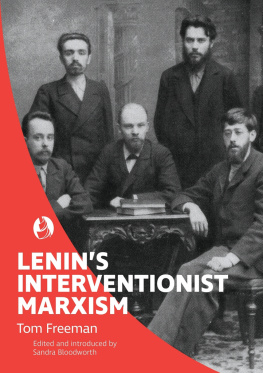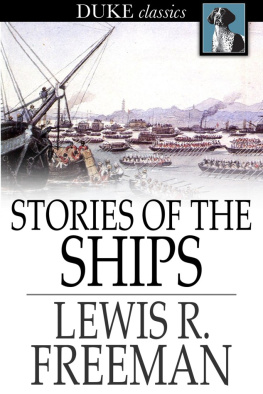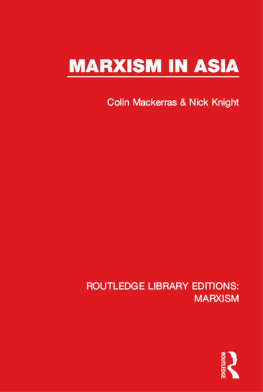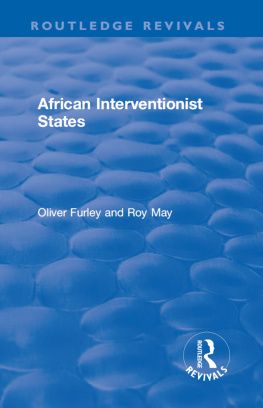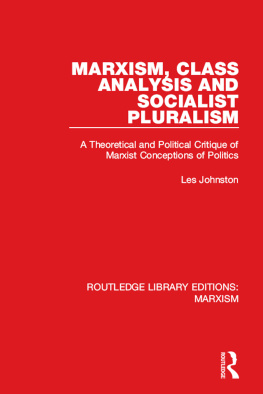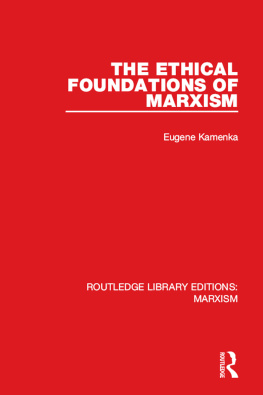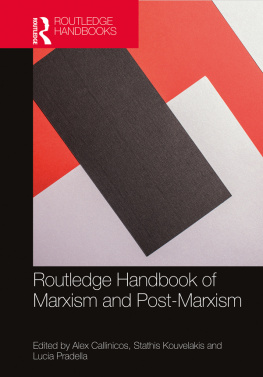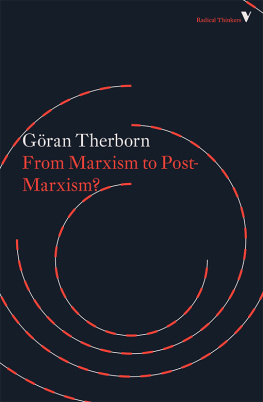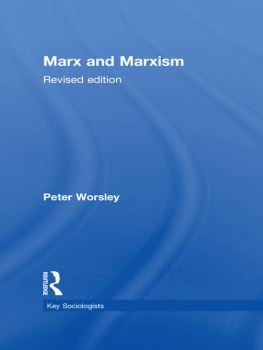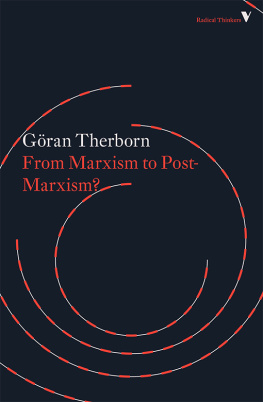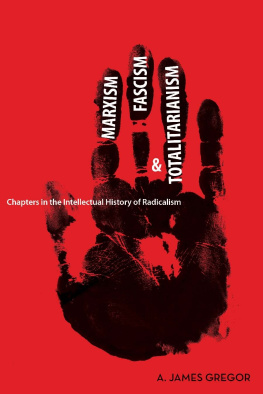
Tom Freeman was a lifelong revolutionary and a member
of the International Socialist Tendency for nearly 30 years.
He died in 2005.

Tom Freeman 1999
Published in 2017 by Interventions
Interventions is a not-for-profit, independent left wing book
publisher. For further information:
www.interventions.org.au
Trades Hall Suite 68
54 Victoria Street
Carlton VIC 3053
Design and layout by Viktoria Ivanova
Printed and bound in Australia by ImpactDigital
National Library of Australia Cataloguing-in-Publication entry
Creator: Freeman, Tom, 1953-2005 author
Title: Lenins interventionist Marxism / by Tom Freeman;
edited by Sandra Bloodworth.
ISBN: 9780994537812 (paperback)
ISBN: 9780645183948 (e-book)
Notes: Includes bibliographical references and index
Subjects: Lenin, Vladimir Ilich, 1870-1924
Philosophy, Marxist--Russia (Federation)--Case studies
Labor unions Russia (Federation)--Saint Petersburg--Case
studies
Labor movement--Russia (Federation)--Saint Petersburg--Case
studies
Communist strategy--Case studies
Other Creators/Contributors:
Bloodworth, Sandra, editor
Contents
Acknowledgements
This thesis owes much to individuals and institutions in three countries. In Australia Professor Leslie Holmes showed great optimism, perseverance, attention to detail and enthusiasm in reading drafts and seeking grants. Professor Graeme Gill read and commented on a substantial section of the preliminary work and was always encouraging. Professor Harry Rigby allowed me to use his extensive personal library for primary and secondary sources, and was sympathetic to my endeavour despite our differences on the topic. I am also indebted to the staffs of the Baillieu and Borchardt Libraries in Melbourne, as well as the National Library and the library of the Australian National University in Canberra for their assistance in finding and supplying what were often very obscure materials.
In England Professors Robert Service and Neil Harding offered me great hospitality and useful discussion. John Molyneux did not agree with some of my pointed comments on his own work, but his reply has had a considerable influence on the form of my argument. Perhaps more than any other writer this thesis builds on his earlier writings concerning the party. Geoffrey Swain discussed his own work that overlapped my topic and supplied relevant sections of his doctoral thesis. In addition I was assisted by the overworked staff of the British Library and the library of the School of Slavonic and East European Studies at the University of London in finding and examining materials.
In Russia I was most of all indebted to the colleagues of the Section on the History of the Russian Revolution and Workers Movement, of the St. Petersburg Branch of the Institute of Russian History, Russian Academy of Sciences, where I was a temporary postgraduate for four months in mid-1995, and was able to present a seminar on my work in mid-1997. These colleagues, and especially the head of the section who acted as my supervisor, Sergei Ivanovich Potolov, showed great hospitality and engaged in many penetrating discussions at a time when their own circumstances were parlous and precipitously declining. In St. Petersburg I was helped by the staff of the Central State Archive of St. Petersburg, the Russian State Historical Archive, and especially the Central State Archive of Historico-Political Documents of St. Petersburg, who provided me with material concerning the workers movement and political parties from the pre-revolutionary period. At the latter archive Tasiia Pavlovna Bondarevskaia, whose own extensive empirical research provided a section of the base for my own argument, was always anxious to discuss issues and helpful in identifying and interpreting documents. To a lesser extent I was assisted by the staff of the Centre for the Preservation and Utilisation of Contemporary Documents, the Russian State Library, the Russian State Historical Library and the Historico-Political Library, all located in Moscow, in finding and interpreting primary and secondary sources.
Perhaps most of all I owe a debt to someone who cannot be thanked personally and will not be able to read the thesis he died some fifteen months before the final submission. Lloyd Churchward spent many hours listening to chapters read out on tape and in person, as he had gone blind some years before I began my work. He stubbornly persisted in this time consuming and exhausting effort even as his health gave way and it became clear that his own time was running out. This commitment reflected the two concerns that had earlier come to dominate his life the reform of the Soviet Union and the establishment of a political science of Soviet-type societies. He lived to see both these dreams reduced to ashes, yet a basic humanistic instinct and intellectual integrity seemed to be encouraged by the progress of this thesis. While I havent dedicated the thesis to Lloyd, I thought, as I was writing the final chapters without him, that he would have found the work a fitting testimonial.
For Ian, John and Dianne, who were right on 22 April 1984,
and for Cliff, who, like me, was so fundamentally wrong, and
with such enduring consequences.
Editors introduction
Sandra Bloodworth
Tom Freeman was a lifelong revolutionary and a member of the International Socialist Tendency (IST) for nearly 30 years. Although he died at the young age of 51 in 2005, he brought to life a history of radical organising which deserves to be better known. So the opportunity to introduce this work is most welcome. His PhD thesis, completed at Melbourne University in 1999, makes a valuable contribution to our knowledge of the early revolutionary movement in tsarist Russia and Lenins theory and politics. Freeman visited Russia several times to undertake original research in Russian-language archives. So simply from the point of view of historical accuracy, but also as a contribution to debates among socialists and others wanting to understand Lenins theory of the revolutionary party, his work deserves a wider readership.
As well as his own detailed research, Freeman draws on histories written by specialists and academics, which are not widely known, creating a rich tapestry of activism, of theoretical and political debates, of industrial and social struggle. This provides the framework with which to show how Lenin developed his ideas as he participated in the struggles of the working class. Freeman shows clearly the interpretation of Marxism Lenin developed, which underpinned his commitment to building a revolutionary party consisting of the most advanced workers. This is an important contribution to the debates about what Lenin stood for. It also highlights aspects of this history with relevance for today.
As is evident from the original title, Lenins conception of the party: organisational expression of an interventionist Marxism, this is no simple narrative history. Freeman engages with general arguments about the relationships of class consciousness, spontaneity, activity and organisation. His arguments about Lenins politics and how he responded to events foreshadow the widely read re-assessment of Lenin by Lars Lih, whose book Lenin Rediscovered
 Tom Freeman was a lifelong revolutionary and a member
Tom Freeman was a lifelong revolutionary and a member

